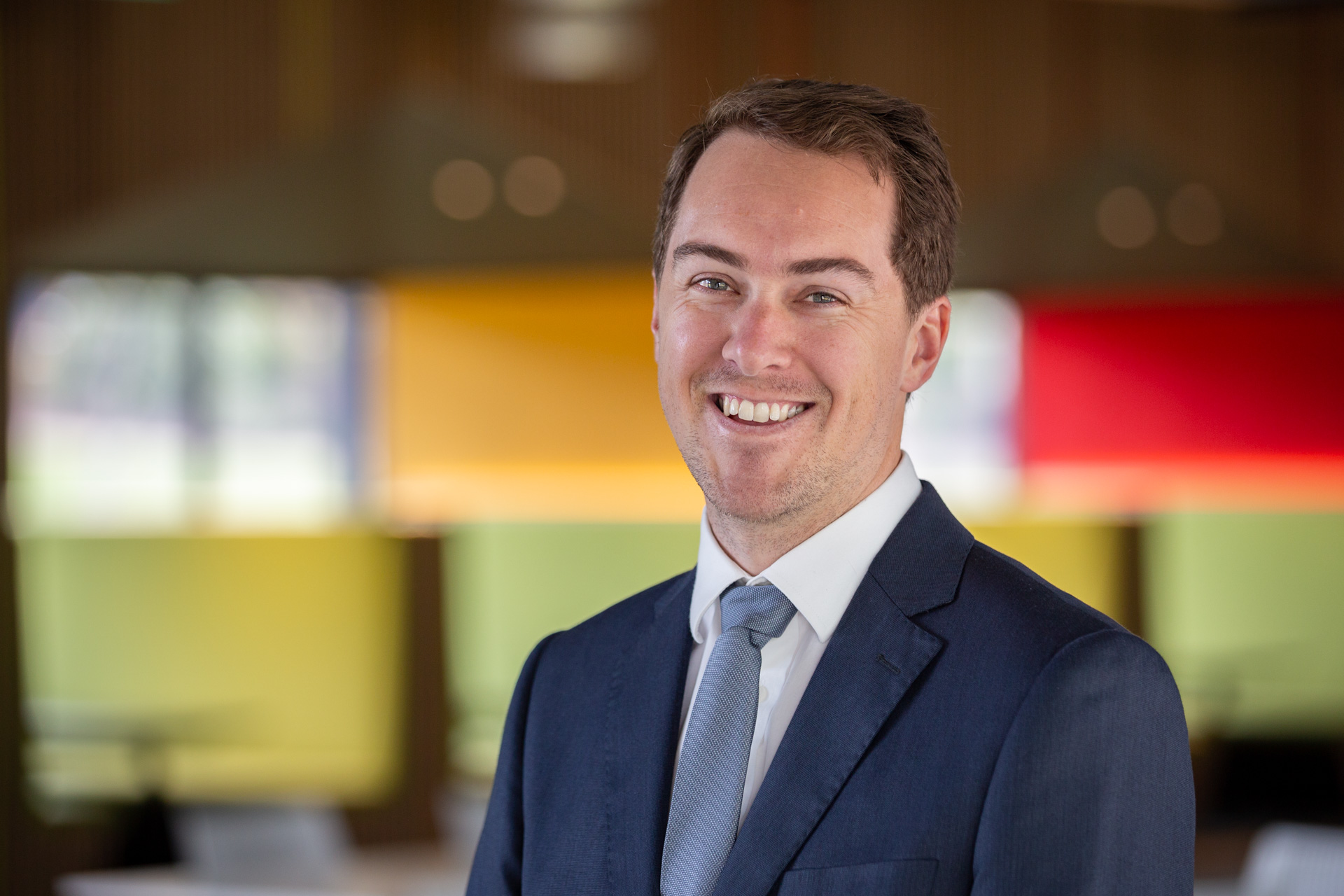At Charles Sturt University, we like to do things differently. Take our Bachelor of Engineering (Honours), which includes two years of paid cadetships with industry, three exciting majors and plenty of problem-based learning.
We sat down with engineer in residence Josh Devitt to get the lowdown on what he does – and how he helps set engineering students up for success – and to answer the question: why study engineering with Charles Sturt?
So, what is an engineer in residence?
“An engineer in residence is essentially someone who has a background in the industry who works alongside the academics here at Charles Sturt University in delivering the course.
“The role is about providing an authentic learning experience that shows students why and how what they are learning is relevant to the professional world and how it applies to the industry. It’s bringing in that industry context and applying it in an academic setting.
“There are several engineers in residence. Each has their own area of expertise. We are all involved in the design and delivery of curriculum around those areas. So, for example, I worked in engineering in local government for about 12 years specialising in project management, civil engineering design, and roads and transport before coming into the university. I work with students in various ways around those fields.
“I’d always wanted to give something back, and I had always taken a keen interest in cadets that were coming through my workplaces on placement. So I felt that I could make a meaningful impact in that space.”
How does the role work in the engineering degree?
“We do a lot of project-based learning in the course. Students work on a particular project, then discuss their ideas with the engineer in residence who has expertise in the area their project is linked to.
“During the course students undertake four one-year embedded – paid – work placements, and I also run workshops to prepare students for those. With my background I can tell students, ‘here’s what you need to know; and here’s what you’ll probably face in the industry context’. That can range from interview preparation to how to deal with ethical issues in the workplace. There’s lots of group discussion and everyone completes reflections on their understanding of the ideas we cover and how they can be applied in the workplace. So it also develops critical thinking and reflective behaviour, which are also important skills for engineers to have.
“We also mentor individual students, particularly when they are on their placements. We act as that connection between the university and their placement organisation, between the industry and academia. Plus, we visit students while they’re on their placements. We’re also always available on email and over the phone to discuss anything they need to.”
Are you involved in anything in a wider engineering industry?
“We also use the contacts and experience we have to build more connections with industry. So, we are going out to find possible placements for students, potential scholarships and possible consulting opportunities.
“As engineers in residence we do some consulting work as well. And that keeps our skills and knowledge up to date and relevant to the industry.
“We also use our connections to get visiting practising engineers to come in and share their experiences. Once per year, we hold a panel with practising engineers at various stages of their careers, from cadets in their later years of the course to senior practising engineers, so students can ask any questions they have about working in the industry.”
What has the industry been saying about our engineering students?
“The feedback we’ve been getting has been very positive. There is a shortage of engineers in rural and regional Australia. So the industry is very positive about the fact that we are helping meet that shortfall with highly trained cadets. And we’re hearing that the drive and self-motivation that we look for in our students translates really well into the workplace.
“We’ve also had feedback that students, even on their first placement, are running projects. That’s traditionally something that wouldn’t happen until you actually graduate.”
Why study engineering in a regional area?
“There is a shortage of engineers in regional areas. Going forward that shortfall will apply probably across Australia, as senior engineers retire. The infrastructure spend we are seeing in major cities is likely to continue. There’s a pipeline of works planned for at least the next decade or so. And as regional areas see more growth, with people moving from major cities, there will be a wealth of opportunities across the country.
“The advantage of being a regional-based engineer is that you get a really diverse range of skills. You are exposed to lots of different things, developing a skill set that you potentially wouldn’t get working in a metropolitan area, where you might just be focused on the one thing. And that skill set can translate into any setting. So you’re set up for a career where you can work in the regions but also the cities as well.
“One of our students did her first year’s placement in a regional council, working with one other engineer. By the end she was across everything that the council was doing. She was running projects, and getting a really broad range of experience. My argument would be that going regional sets you up for wherever you want to take your career further down the line.”
So why study engineering with Charles Sturt? Why would you go anywhere else?
If you’re asking yourself “why study engineering,” ask yourself this. Do you want to help build the Australia of the future – and a dynamic career at the same time? If so, our unique engineering course is for you. Study our innovative curriculum, led by expert academics. And benefit from the industry connections of our engineers in residence – like Josh.
Contact us to find out more.

